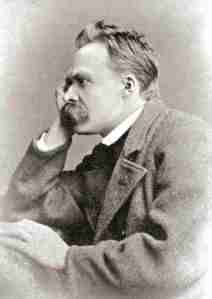Introduction
From within the Non-Christian worldview it may be rather easily seen that the term “religion” is extremely difficult, if not impossible, to define. This is no doubt due to the subjective nature of the term once it is divorced from the Christian worldview. A number of thinkers will be discussed in this series in order to show the great difficulty of even involving oneself with philosophy of religion without a solid foundation to work from. People tend to cast upon the term their own ideas and experiences of a particular religion or philosophical categories they think pertain to religion. This is no different for the philosopher than it is the layperson. In actuality, the way religion is defined affects every other facet of the philosophy of religion the person defining religion focuses upon or adheres to.
For example, many thinkers find the claims in different religions to be set forth as objective truth claims to be dealt with in the same manner as any other proposition of that kind. Rene Descartes and David Hume both seem to view religion in this way, as does Sigmund Freud, though he places a great deal of emphasis upon psychological reasons for religion to the extent that one wonders whether or not it matters if religion is what it sometimes claims to be or is claimed to be. Friedrich Nietzsche appears to successfully destroy the view of religion described, allegedly moving beyond the categories used in philosophy which are placed upon religion. The philosopher William James has little regard for the metaphysical questions involved in religion and sees religion instead through the lens of pragmatic concern. For him religion is a useful enterprise, whether true or false in the traditional sense and regardless of the specific claims of doctrine. Soren Kierkegaard takes a completely different view of the matter. He does not find the apparent problems in religion to be disturbing to the point that religion should be rejected, but rather embraces the paradoxical and absurd nature of religion. Martin Buber largely follows this train of thought and points out that philosophers have really missed the point. Before repeating the problem before us it should be mentioned that if nothing else this series will provide a summary of much important philosophical thought from major thinkers concerning religion. Such a summary is perhaps a much needed part of the aspiring apologist’s equipment. To reiterate then, within the non-Christian worldview religion is such a subjective and vague term that it is difficult and perhaps impossible to define. Each thinker mentioned above has very specific views of religion which are inherent in his writings concerning the matter as it pertains to philosophy, philosophical challenges, intellect and practice.
Rene Descartes
Descartes believes there is a need to prove the claims of religion. He attempts to  do this through philosophy, creating an epistemology including God, souls, and certainty. He starts this process by doubting. Descartes realizes that arguments
do this through philosophy, creating an epistemology including God, souls, and certainty. He starts this process by doubting. Descartes realizes that arguments
beginning from theology are circular. He thinks it is okay for believers to accept these circular “proofs”, but nonbelievers cannot accept them (Descartes 3). He writes to the religious authorities of his day to provide an explanation of his desire to prove doctrines like the existence of God and the existence of souls to nonbelievers. The supposed reason for this is that the nonbelievers might accept these claims apart from theology and the circular arguments derived from it.
I have always thought that two topics – namely God and the soul – are prime examples of subjects where demonstrative proofs ought to be given with the aid of philosophy rather than theology. For us who are believers, it is enough to accept on faith that the human soul does not die with the body, and that God exists; but in the case of unbelievers, it seems that there is no religion, and practically no moral virtue, that they can be persuaded to adopt until these two truths are proved to them by natural reason. (Descartes 3)
Related to this is Descartes’ need to find a starting point other than theology which is acceptable to the nonbelievers he is targeting. This starting point must also dodge skeptical arguments leveled against it. Thus Descartes strives to find certainty upon the starting point of skepticism so that the skeptic cannot provide a response.
What I have done is to take merely the principal and most important arguments and to develop them in such a way that I would now venture to put them forward as very certain and evident demonstrations. I will add that these proofs are of such a kind that I reckon they leave no room for the possibility that the human mind will ever discover better ones. (Descartes 4)
Descartes regards his arguments as certain proof that God exists.
Descartes therefore views religion as something which may be treated by philosophy as any other subject may be treated. He also would presumably think that belief in God has a bearing upon one’s practical life since he tries to stick with more traditional views of religion, but what is indubitable is that Descartes thinks belief in God has a huge bearing upon one’s intellectual life and philosophy. This is known because his more original argument for the existence of God is epistemologically driven. He needs God to get rid of his skeptical worries, as will be seen in a moment.
Descartes thinks that all ideas have causes with as much reality as their effects. This means that while he is the cause of most of his ideas, he cannot cause the idea he has of God. Only God can do that. He presents his conception of God.
By the word ‘God’ I understand a substance that is infinite, independent, supremely intelligent, supremely powerful, and which created both myself and everything else (if anything else there be) that exists. All these attributes are such that, the more carefully I concentrate on them, the less possible it seems that they could have originated from me alone. So from what has been said it must be concluded that God necessarily exists. (Descartes 45)
Descartes has thus conjured up a concept of God that he thinks he has not conjured up, since causes need at least as much reality as their effects, a widely accepted principle of his day (Descartes 45). Only an infinite God like Descartes’ could have caused the idea of an infinite God, so this God exists. What is important here with respect to the intellect and philosophy is that the Cartesian God, soul, certainty, and epistemology are all contingent on this argument because Descartes must get rid of the idea that an evil demon (or more likely some fault with the cognitive faculties) could be deceiving him about everything (Descartes 70). Descartes is necessarily a skeptic by his own admission if his program fails. Of course, he does not think that it does fail.
Now, however, I have perceived that God exists, and at the same time I have understood that everything else depends on him, and that he is no deceiver; and I have drawn the conclusion that everything which I clearly and distinctly perceive is of necessity true. (Descartes 70)
Therefore Descartes views religion as being intimately related with philosophy so much that epistemology itself rests upon it. He likewise must think that religious belief has significant consequences in the intellectual life.
Friedrich Nietzsche
Nietzsche makes room in his very busy schedule of attacking everything else to attack Descartes as well and to comment on religion. Nietzsche thinks that what Descartes takes to be a foundational certainty, “I think”, really is not certain at all. The problem is that “I
think” involves a whole slew of empty assertions.
When I analyze the process that is expressed in the sentence, “I think”, I find a whole series of daring assertions that would be difficult, perhaps impossible, to prove; for example, that it is I who think, that there must necessarily be something that thinks, that thinking is an activity and operation on the part of a being who is thought of as a cause, that there is an “ego”, and, finally, that it is already determined what is to be designated by thinking – that I know what thinking is. (Nietzsche 23)
that thinks, that thinking is an activity and operation on the part of a being who is thought of as a cause, that there is an “ego”, and, finally, that it is already determined what is to be designated by thinking – that I know what thinking is. (Nietzsche 23)
There is no reason to assume that the thinking which goes on in, for example, Descartes’ work corresponds to the “I” Descartes believes it does, in fact the thinking may correspond to nothing at all. Aside from this it is not known or explained what thinking is, it is just assumed that it is something caused by a being, both the cause and the being constituting large assumptions themselves. There is also a comparison being made between present and past moments and states with an assumption that some sort of connection exists, which is again unproven. This does a great deal of violence to Descartes’ proofs since he cannot get past global skepticism without this certainty. That is, as has been mentioned already, Descartes bases his view of God, souls, and epistemology on this alleged certainty. Since philosophy itself as Nietzsche conceives of it is full of failings, obviously any sort of connection between religion and philosophy will fall prey to many of the same problems pointed out by Nietzsche. Nietzsche sees the religious sentiment of his day growing, but not the theistic element of it. This is because the character of God has been called into question by the reality of life (Nietzsche 66). Of course he despises religion even in its pragmatic elements, going on about how it is used and abused by government, and seeing that it is “tied to three dangerous dietary demands: solitude, fasting, and sexual absence” (Nietzsche 61). These three he takes to exist everywhere that religion has existed, which is detrimental to humanity since things that are so fully a part of human nature are legislated against by it (Nietzsche 61).
Works Cited
David Hume. An Enquiry Concerning Human Understanding And Selections From A Treatise Of Human Nature. The Open Court Publishing Company. Illinois. 1963.
David Hume. Dialogues Concerning Natural Religion. Pearson. NJ. 2008.
Friedrich Nietzsche. Beyond Good and Evil.
Martin Buber. Eclipse of God.
René Descartes. Meditations on First Philosophy: With Selections from the Objections and Replies. Cambridge University Press; Cambridge, UK. 1996.
Sigmund Freud. The Future of an Illusion. Norton & Company. New York. 1989.
Soren Kierkegaard. Fear and Trembling. Penguin. New York, NY. 1985.
William James. The Varieties of Religious Experience. New York, NY. Simon and Schuster, 1997.
Leave a Reply